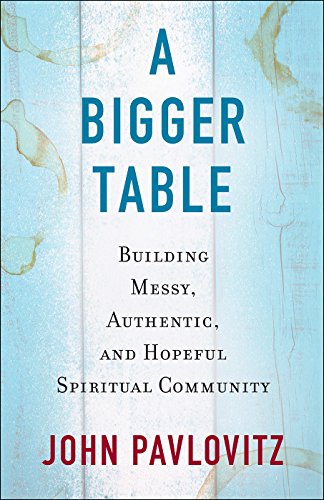 From John the Baptist and Herod to Jerry Falwell Jr. and Trump is a very long fall.
From John the Baptist and Herod to Jerry Falwell Jr. and Trump is a very long fall.
In general, it’s been hard to raise much excitement over the Stormy Daniels story. OK, Trump had an affair with a porn star while his wife was home with a new baby. Ten years later, as the election approached, his lawyer paid six figures to hush her up. (And if you believe a Steve Bannon quote in Fire and Fury, she’s not the only one.) Assume all that is true: Does it change your opinion of Donald Trump?
I didn’t think so. As Shakespeare’s fool Touchstone says:
If you swear by that that is not, you are not forsworn: no more was this knight swearing by his honour, for he never had any.
Trump can’t lose his reputation for moral uprightness or even basic decency, because he never had one. The American public is well beyond being shocked by any new revelation about his character. A similar scandal about Obama would have been earth-shaking. But Trump? Not so much.
So if you want to get a story out of the Daniels incident, you need to widen your scope somehow, like ask where the money to pay her off came from, or look at somebody who still has a reputation to lose.
I think that’s why so much of the public outrage has shifted its focus from Trump himself to the self-styled moral leaders who defend him and the pitiful defenses they have mustered. The truly shocking thing about the Daniels story is the way that so many Christian leaders have been willing not just to debase themselves, but to spend down the moral capital of Christianity itself in order to protect the man they put in the White House.
Pious enablers. For Tony Perkins of the Family Research Council, illicit sex is no more serious than golf — at least when Trump does it. “You get a mulligan,” he says. Presumably, this follows the mulligans he had already given Trump for all the women who accused him of sexual assault, or for his own bragging about assaulting them.
Franklin Graham, in a single interview, said both that “our country has a sin problem” and that Trump buying the silence of a porn star is not a big deal because the president isn’t expected to be “the pastor of this nation”. Robert Jeffress has been notably silent about the Daniels payoff, after defending Trump’s “shithole countries” comment two weeks ago: “I’m grateful we have a president like Donald Trump who … has the courage to protect the well-being of our nation.”
 But the prize goes to Jerry Falwell Jr., who defended Trump by debasing the words of Jesus himself. CNN’s Erin Burnett had connected Stormy Daniels to the many women whose stories flesh out Trump’s boastful confession on the Access Hollywood tape, and then asked Falwell how many times Trump has to offend
But the prize goes to Jerry Falwell Jr., who defended Trump by debasing the words of Jesus himself. CNN’s Erin Burnett had connected Stormy Daniels to the many women whose stories flesh out Trump’s boastful confession on the Access Hollywood tape, and then asked Falwell how many times Trump has to offend
before you say “This is a person who lacks character”?
In response, Falwell falsely claimed that Trump had “apologized” and “asked forgiveness” for his past wrongdoing. (If you’ve repented, you stop calling your accusers liars.) Then he asserted that Trump is “not the same person now that he was back then”. (The Daniels payoff happened in 2016.) Then he capped his defense with this argument, which I’m sure Christian philanderers all over America are filing for future use:
Jesus said that if you lust after a woman in your heart, it’s the same as committing adultery. You’re just as bad as the person who has, and that’s why our whole faith is based around the idea that we’re all equally bad, we’re all sinners.
As I’m sure Falwell must know, the context of the Jesus quote was to call his followers to a higher standard, not the lower one Falwell is offering. What Jesus is saying in this part of the Sermon on the Mount is: Don’t just restrain yourself from murder, root out the anger and hatred in your heart. Don’t just avoid adultery, stop indulging your adulterous fantasies. Don’t just love your friends, love your enemies too.
But Falwell has turned Jesus’ message upside-down. Now it’s a blanket excuse for anybody to do anything, because everybody else is just as bad. If the thought of cheating on your wife with a porn star is already as bad as the deed, then why not just go ahead and do it? And if we’re all equally guilty anyway, then what basis does any pastor have to tell his flock to do or not do anything?
I’ve never been to Falwell’s church, but I guarantee you this is not a message he has ever preached from a pulpit. This is a special gospel that applies only to powerful men he has allied himself with, and whose approval he desires.
The truth-to-power tradition. But the Bible doesn’t offer a special gospel for the powerful; it points in the opposite direction. Moses doesn’t approach Pharaoh with praise and flattery, he announces plainly: “Let my people go.” The Prophet Nathan doesn’t offer King David a mulligan, he accuses David to his face and proclaims God’s judgment:
You had Uriah the Hittite killed in battle. You took his wife as your wife. You used the Ammonites to kill him. So warfare will never leave your house.
Elijah doesn’t go to King Ahab and say, “Hey, don’t sweat it, everybody worships a false god now and then.” His message was unequivocal.
I have not troubled Israel, but you have, and your father’s house, because you have abandoned the commandments of the Lord and followed the Baals.
And finally, John the Baptist, at the cost of his own head, tells King Herod that it was wrong to take his brother’s wife. Like Falwell, he could have said, “You know, everybody has imagined doing the same thing, and that’s just as bad.” Maybe that would have gotten him an appointment to Herod’s But he didn’t.
Nowhere in the Bible does a prophet say: “Maybe if I soft-pedal God’s message so that it fits what the King wants to hear, he’ll keep me around and I’ll be able to get godly judges appointed. Wouldn’t that do more good in the long run?”
But that’s precisely what today’s Christian leaders do, or at least the white evangelical ones.
“Just shut up.” I’m not the only one who has noticed this. I think former RNC Chair Michael Steele spoke for a lot of people when he requested that leaders like Perkins and Falwell “shut the hell up”.
I have very simple admonition: just shut the hell up and don’t preach to me about anything ever again. After telling me who to love, what to believe, what to do and what not to do, and now you sit back and the prostitutes don’t matter, the grabbing the you-know-what doesn’t matter, the outright behavior and lies don’t matter — just shut up! They have no voice of authority anymore for me.
Steele is coming out of a political worldview, but you can also hear the sorrow in his voice. This isn’t just about Republicans and Democrats any more, it’s about Christianity, a religion that he cares about.
 Remonstrance. It’s also about Christianity for John Pavlovitz, the former youth pastor of a conservative megachurch in Charlotte and current youth pastor of the more liberal North Raleigh Community Church (whose web site says “We believe Christianity is worth saving“). On his blog Stuff That Needs To Be Said Pavlovitz posted “White Evangelicals, This Is Why People Are Through With You“. He argues that worldly power and white identity politics have replaced Jesus as the center of the white evangelical message:
Remonstrance. It’s also about Christianity for John Pavlovitz, the former youth pastor of a conservative megachurch in Charlotte and current youth pastor of the more liberal North Raleigh Community Church (whose web site says “We believe Christianity is worth saving“). On his blog Stuff That Needs To Be Said Pavlovitz posted “White Evangelicals, This Is Why People Are Through With You“. He argues that worldly power and white identity politics have replaced Jesus as the center of the white evangelical message:
They see your hypocrisy, your inconsistency, your incredibly selective mercy, and your thinly veiled supremacy.
He points to evangelical leaders’ demonization of President Obama, “a man faithfully married for 26 years; a doting father and husband without a hint of moral scandal or the slightest whiff of infidelity”.
They watched you deny his personal faith convictions, argue his birthplace, and assail his character—all without cause or evidence. They saw you brandish Scriptures to malign him and use the laziest of racial stereotypes in criticizing him.
But with Trump, everything is different.
With him, you suddenly find religion.
With him, you’re now willing to offer full absolution.
With him, all is forgiven without repentance or admission.
With him you’re suddenly able to see some invisible, deeply buried heart.
With him, sin has become unimportant, compassion no longer a requirement.
With him, you see only Providence.
And why?
They see that all you’re really interested in doing, is making a God in your own ivory image and demanding that the world bow down to it. They recognize this all about white, Republican Jesus—not dark-skinned Jesus of Nazareth.
 Not just one incident. Christians who want to hang on to Jesus and his message have been writing similar remonstrances to their white evangelical brethren for some while now. In November, when white Evangelicals stood by Roy Moore in spite of multiple credible accusations of his predatory behavior, and in spite of (or maybe because of) his long history of anti-gay bigotry and putting Christian partisanship above the rule of law, Miguel De La Torre responded with “The death of Christianity in the U.S.“.
Not just one incident. Christians who want to hang on to Jesus and his message have been writing similar remonstrances to their white evangelical brethren for some while now. In November, when white Evangelicals stood by Roy Moore in spite of multiple credible accusations of his predatory behavior, and in spite of (or maybe because of) his long history of anti-gay bigotry and putting Christian partisanship above the rule of law, Miguel De La Torre responded with “The death of Christianity in the U.S.“.
To save Jesus from those claiming to be his heirs, we must wrench him from the hands of those who use him as a façade from which to hide their phobias — their fear of blacks, their fear of the undocumented, their fear of Muslims, their fear of everything queer.
Evangelicalism has ceased to be a faith perspective rooted on Jesus the Christ and has become a political movement whose beliefs repudiate all Jesus advocated.
 De La Torre’s article looks further back, to “Evangelicalism’s unholy marriage to the Prosperity Gospel” and those who “remained silent or actually supported Charlottesville goose steppers because they protect their white privilege with the doublespeak of preserving heritage”, as well as Christian leaders’ support for Trump in the 2016 election. “The Evangelicals’ Jesus is Satanic” he writes, and concludes by urging the followers of this perversion of Christianity to “get saved”.
De La Torre’s article looks further back, to “Evangelicalism’s unholy marriage to the Prosperity Gospel” and those who “remained silent or actually supported Charlottesville goose steppers because they protect their white privilege with the doublespeak of preserving heritage”, as well as Christian leaders’ support for Trump in the 2016 election. “The Evangelicals’ Jesus is Satanic” he writes, and concludes by urging the followers of this perversion of Christianity to “get saved”.
Trump’s election was the occasion for mournful remonstrances like “Life After Evangelicalism” by Rachel Held Evans. Evans, who has taken refuge in the Episcopal Church after finding the conservative Christianity of her youth unsustainable, wrote to those Evangelicals for whom the election was a wake-up call.
There’s an op-ed out every minute urging the bewildered to get out of their bubbles and get to know some Trump supporters, but you don’t need to do that, do you?
These are the people you worship with each week, the people whose kids hang out with your kids, the people who brought you a chicken casserole when you had surgery, the people you call with good news, the people you’re now wishing you’d spoken with more bluntly, more honestly.
They aren’t strangers to you, are they? But suddenly, you are a stranger among them.
And she offers them hope that Christianity itself isn’t dead yet, even if their own Christian community has abandoned or marginalized them.
The good news is that Jesus is already on the margins. Jesus is already present among the very people and places our president-elect despises as weak. When we stand in solidarity with the despised and the suffering, Jesus stands with us. We don’t have to abandon Jesus to abandon the unholy marriage between Donald Trump and the white American Church. In these troubled times, a prophetic resistance will certainly emerge, made up of clergy, activists, artists, humorists, liturgists, parents, teachers, and volunteers committed to partnering with and defending “the least of these.” I found my faith again in the margins—through the Gay Christian Network, for example, and among fellow doubters and dreamers who limp from their wrestling with God
 A long time coming. A great religion can’t be corrupted overnight. To those who have been following more closely, evangelical abandonment of the Sermon on the Mount in favor of white identity politics is old news. Michele Goldberg relates some of the history, beginning with Jerry Falwell Sr.’s pro-segregation sermons in the 1950s. (I would have gone back further, to the Christian defense of slavery. That’s what put the “Southern” in Southern Baptists.)
A long time coming. A great religion can’t be corrupted overnight. To those who have been following more closely, evangelical abandonment of the Sermon on the Mount in favor of white identity politics is old news. Michele Goldberg relates some of the history, beginning with Jerry Falwell Sr.’s pro-segregation sermons in the 1950s. (I would have gone back further, to the Christian defense of slavery. That’s what put the “Southern” in Southern Baptists.)
“When God has drawn a line of distinction, we should not attempt to cross that line,” he wrote, warning that integration “will destroy our race eventually.” In 1967, Falwell founded the Lynchburg Christian Academy — later Liberty Christian Academy — as a private school for white students.
What galvanized Falwell’s commitment to politics — and that of 1970s Evangelicals in general — wasn’t abortion, the cause usually cited, but the IRS’ denial of tax-exempt status to segregated schools. [1]
In the 1980 election, Falwell’s Moral Majority supported America’s first divorced president, Ronald Reagan, largely erasing the previous stigma of divorce. [2] Goldberg quotes historian Randall Balmer:
Up until 1980, anybody who was divorced, let alone divorced and remarried, very likely would have been kicked out of evangelical congregations.
Bending its “family values” to accommodate Trump, she says, is nothing new.
Trump has simply revealed the movement’s priorities. It values the preservation of traditional racial and sexual hierarchies over fuzzier notions of wholesomeness.
“I’ve resisted throughout my career the notion that evangelicals are racist, I really have,” Balmer told me. “But I think the 2016 election demonstrated that the religious right was circling back to the founding principles of the movement. What happened in 2016 is that the religious right dropped all pretense that theirs was a movement about family values.”
She concludes:
it seems absurd to ask secular people to respect the religious right’s beliefs about sex and marriage — and thus tolerate a degree of anti-gay discrimination — while the movement’s leaders treat their own sexual standards as flexible and conditional. Christian conservatives may believe strongly in their own righteousness. But from the outside, it looks as if their movement was never really about morality at all.
The price. For Americans who grew up before the advent of the Moral Majority, or before evangelical leaders became so nakedly partisan, Christianity largely retains an aura of wholesomeness and goodwill. But for younger Americans, this is vanishing. The 538 blog produced this graphic from data collected by the Public Religion Research Institute. Among Americans above 65, 26% consider themselves white Evangelical Protestants, nearly 80% identify with some form of Christianity, and only 12% say they are unaffiliated with any religion. But for those 18-29, 38% are unaffiliated, 53% are Christians of some sort, and only 8% are white Evangelical Protestants.
In 1987, 23% of white Evangelical Protestants were over 65, while almost as many, 20%, were 18-29. But by 2016, the 65-and-older cohort was dominating the 18-29s, 30%-11%. The Barna Group finds that among those born since 1999, 13% identify as atheists, compared to 6% in the general population.
 In the prologue of her latest book, Rachel Held Evans recalls an attempt to explain younger people’s disenchantment:
In the prologue of her latest book, Rachel Held Evans recalls an attempt to explain younger people’s disenchantment:
Millennials aren’t looking for a hipper Christianity, I said. We’re looking for a truer Christianity, a more authentic Christianity.
Authentic can be a hard word to define, but I can tell you very quickly what authentic Christianity isn’t: a set of soundbites that prop up a morally bankrupt president because of the favors he promises to Christian leaders and institutions.
The price of the corrupt bargain made by Perkins, Graham, Jeffress, and Falwell — what they have traded for their White House access and Neil Gorsuch’s Supreme Court seat — is the destruction of the Christian brand. Say “Christian” to a young adult, and the word-association you’re likely to get back is “hypocritical” or “judgmental”.
Columnist Michael Gerson (a never-Trump Republican) sums up:
When presented with the binary choice of Hillary Clinton or Donald Trump, I can understand a certain amount of anguish. But that is not a reason to become sycophants, cheerleaders and enablers. Politics sometimes presents difficult choices. But that is not an excuse to be the most easily manipulated group in American politics.
The problem, however, runs deeper. Trump’s court evangelicals have become active participants in the moral deregulation of our political life. Never mind whatever is true, whatever is honorable, whatever is right, whatever is of good repute. Some evangelicals are busy erasing bright lines and destroying moral landmarks. In the process, they are associating evangelicalism with bigotry, selfishness and deception. They are playing a grubby political game for the highest of stakes: the reputation of their faith.
Christians like Evans, De La Torre, and Pavlovitz may be working hard to undo the damage the Trump toadies have done to the Christian brand. But it will be an uphill battle. For more and more Americans — especially young Americans — the word Christian itself is stained. Describing an idea, an institution, a speaker, or a political position as Christian no longer evokes a open, accepting attitude in American listeners. Quite the opposite, it puts more and more of us on edge; it signals that something dodgy is about to be presented, something that justifies existing oppressions, something self-serving, self-righteous, and quite likely hateful.
White Evangelicals would like to attribute this stain to the slanders of a hostile secular culture. But outsiders could never manage such a feat. The stain comes from the leaders that so many Christians have chosen to follow.
[1] At the time of Rowe v Wade, abortion was actually a debatable issue among evangelical theologians. Only after a political anti-abortion movement started to take off did opposition to abortion become a cornerstone of Evangelicalism. The religion did not lead the politics, it followed.
[2] Those who claim that the Religious Right holds true to traditional Christian principles will often cite its opposition to abortion and gay rights, as if these issues had been central to Christianity in any other era. Both abortion and homosexuality existed in Jesus’ time, and yet you will search the gospels in vain to find any mention of them; he appears not to have been all that concerned about them. Certainly he does not condemn either in terms that are nearly so direct and unequivocal as what he says about divorce in Matthew 19:
Whoever divorces his wife, except for sexual immorality, and marries another, commits adultery.
It is currently beyond the pale for Evangelical churches to accept non-celibate gays and lesbians, ostensibly because they persist in their sin without repentance. But divorced-and-remarried couples are equally persistent in what Jesus described as adultery, and they are welcome.
As with Trump and Reagan, standards are infinitely flexible if a church likes you, but strict and literal if it doesn’t. The Bible has nothing to do with this.






 Thursday, the story of the Kentucky county clerk who refused to issue marriage licenses (now that same-sex couples can marry) reached its inevitable conclusion. Having been
Thursday, the story of the Kentucky county clerk who refused to issue marriage licenses (now that same-sex couples can marry) reached its inevitable conclusion. Having been 





 But the way the new “religious freedom” will ultimately be brought down is to force courts to consider its laws in the light of the 14th Amendment’s guarantee of “equal protection under the law”. If “religious freedom” laws end up giving atheists and Muslims the same consideration Christians are claiming, Christians will repeal those laws themselves.
But the way the new “religious freedom” will ultimately be brought down is to force courts to consider its laws in the light of the 14th Amendment’s guarantee of “equal protection under the law”. If “religious freedom” laws end up giving atheists and Muslims the same consideration Christians are claiming, Christians will repeal those laws themselves.